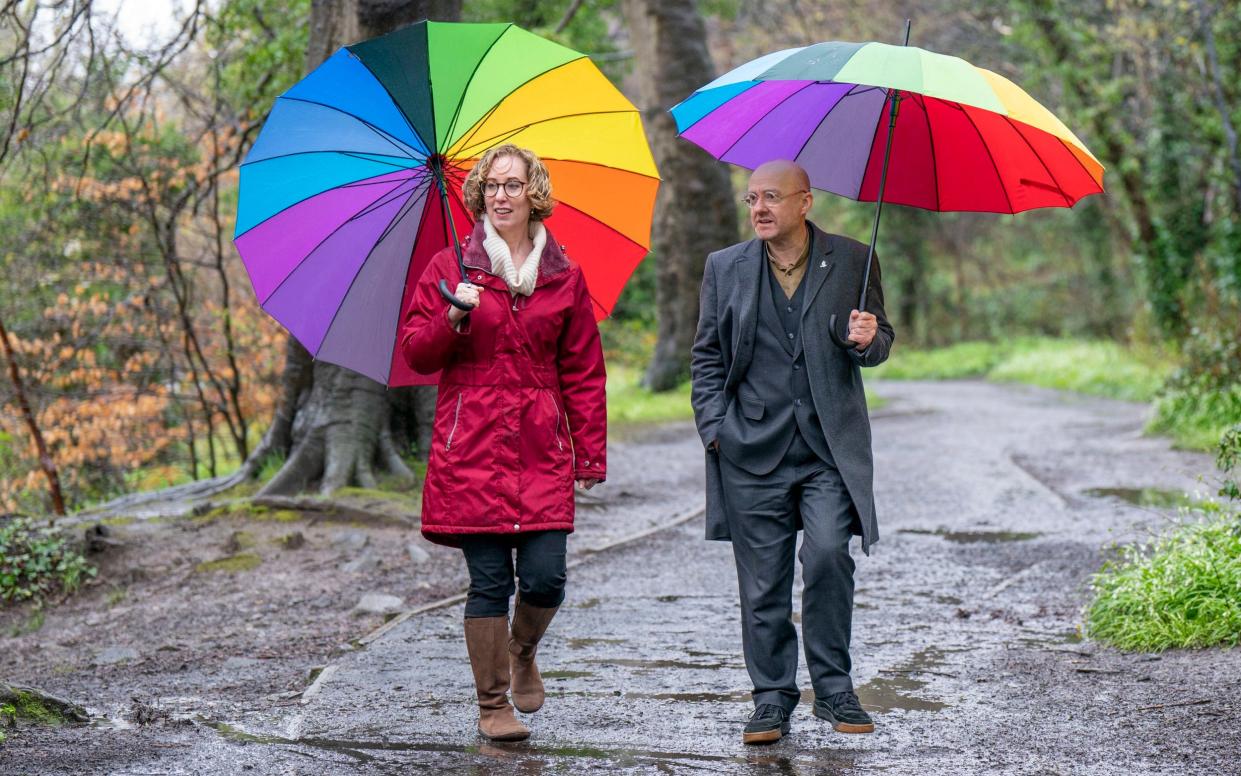JK Rowling accuses Scottish Greens of ‘fundamentalism’ over Cass review

- Oops!Something went wrong.Please try again later.
- Oops!Something went wrong.Please try again later.
JK Rowling has accused one of the Green ministers in Humza Yousaf’s government of being a “fundamentalist” after he rubbished the Cass review into gender identity services for children.
Patrick Harvie, the Scottish Greens’ co-leader, said there were “far too many criticisms of it” for him to accept it as a “valid scientific document”.
Despite author Dr Hilary Cass being one of the UK’s most eminent paediatricians, he said “serious evidence” had not been considered and was “specifically excluded” from her review.
Mr Harvie also said he wanted to be “really, really clear” that a decision last week to suspend the use of puberty blockers in Scotland in the wake of the review was made by clinicians and not ministers.
However, his attempt to distance the Scottish government from the move had previously been undermined by Neil Gray, the SNP health secretary, who said it was the right decision.
Highlighting Mr Harvie’s comments, Rowling tweeted: “No objective truth or scientific fact will shake a fundamentalist. There’s literally no limit to the nonsense they’ll speak, the lies they’ll tell or the derision they’ll brave rather than question the faith around which they’ve organised their lives.”
Michelle Thomson, an SNP MP, said Mr Harvie’s response was “unbelievable”. She said: “It is, in effect, a form of science denialism. That’s heading towards the world of Trump.
“Nobody who had read and understood the report could not agree it was entirely evidence-based and scientific from someone who is extremely well regarded as a leading academic and paediatrician in their field.”
Green response
She added: “The Greens need to decide that within their role in the Scottish government they either respond to evidence – even if they don’t agree or are disappointed or dismayed by its findings – or they don’t. If they don’t, I can’t see how it won’t call into question the Bute House agreement. I don’t think that we should continue in partnership with the Greens.”
Meghan Gallacher, the Scottish Tory deputy leader, said: “Patrick Harvie’s dismissiveness towards the Cass Review further emphasises that he is not fit to be in government.
“Instead of accepting its recommendations, he is still trying to undermine the review. Both the SNP and the Greens have buried their heads in the sand by saying it is solely a matter for clinicians rather than doing the right thing and offering support to protect our vulnerable, young people.”
Michael Foran, an equality law expert and public law lecturer at the University of Glasgow, said: “Patrick Harvie, co-leader of the Scottish Greens spreading misinformation about the Cass Report and stoking a culture war by refusing to deny or condemn his colleague Ross Greer’s description of it as a transphobic conservative report. This is irresponsible and dangerous.”
Mr Harvie was asked repeatedly on BBC Scotland’s Sunday Show whether he considered the Cass review to be a “valid scientific document”.
He said: “I’ve seen far too many criticisms of it so far to be able to say that.
“There will be a ministerial statement next week about what happens next and I want to be really, really clear that the decision made last week was not a government decision.
“It was made by individual clinicians, and if they need more evidence that it is best practice around the world, and has been the case for a long time till it can continue, then we need to work with them to make sure that our evidence is there.”
His comments come ahead of a ministerial statement on the review this week, and after another Scottish Green MSP described the report as a “transphobic, conservative document”.
Dr Cass found that the evidence for allowing young people and children to change gender was built on weak foundations and that there was no good evidence on the long-term outcomes of treatments such as puberty blockers that are given to children.
She could also not rule out that they could contribute to psychological or physical problems in later life, including infertility.
This prompted the Sandyford Clinic in Glasgow to announce that it would also no longer prescribe “gender affirming hormones” to new patients aged under 18.

